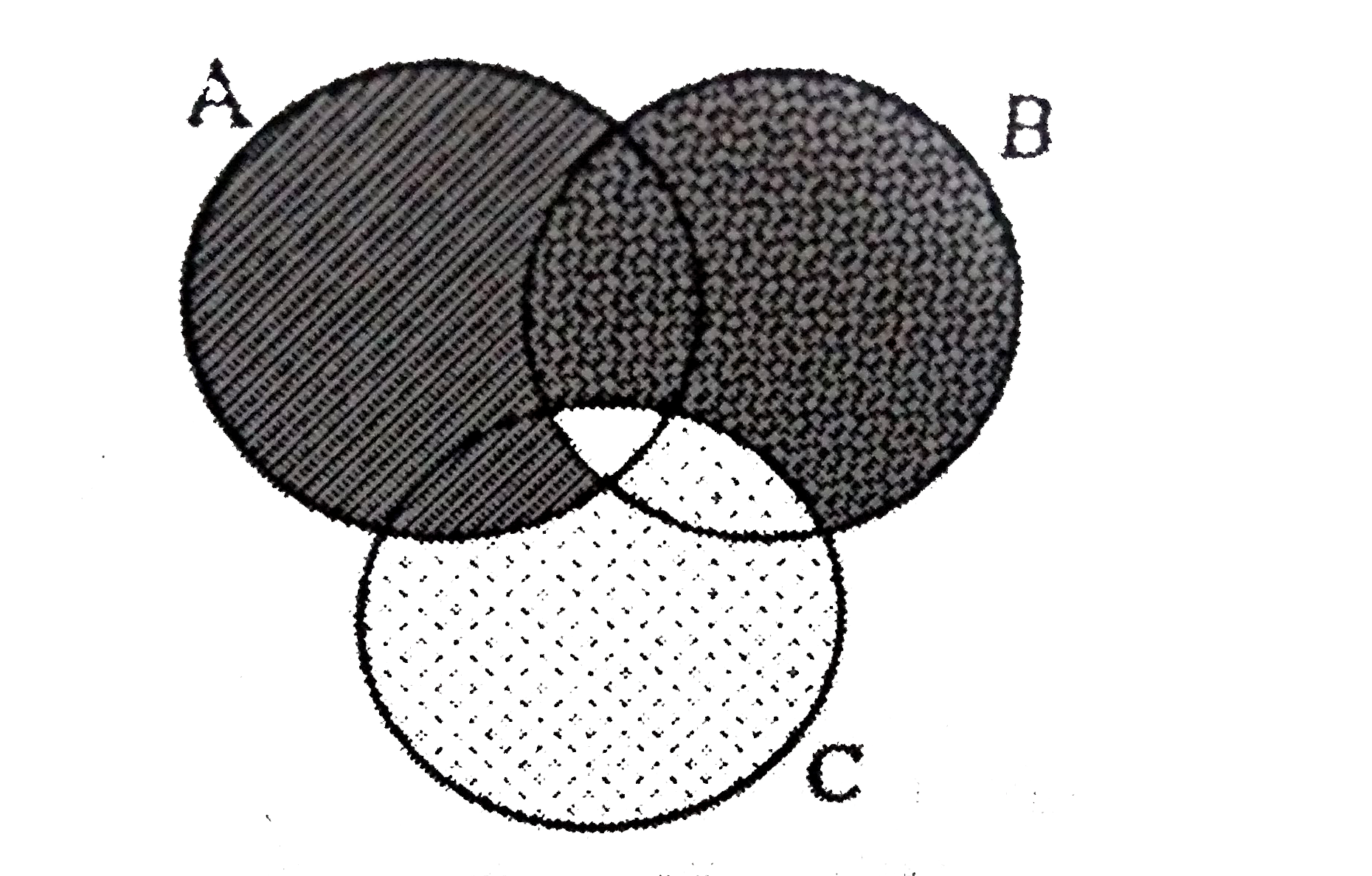Let U be the universal set and A∪B∪C=U . Then {(A−B)∪(B−C)∪(C−A)} is equal to -
A
A∪B∪C
B
A∪(B∩C)
C
A∩B∩C
D
A∩(B∪C)
Video Solution
Text Solution
The correct Answer is:C
(A−B)∪(B−C)∪(C−A) is represented by the shaded portion in the figure . The unshaded portion is A∩B∩C.

∴{(A−B)∪(B−C)∪(C−A)}'=A∩B∩C
|
Updated on:21/07/2023
Topper's Solved these Questions
Similar Questions
Knowledge Check
- Question 1 - Select One
Let U be the universal set and A∪B∪C=U . Then {(A−B)∪(B−C)∪(C−A)} is equal to -
AA∪B∪CBA∪(B∩C)CA∩B∩CDA∩(B∩C) - Question 2 - Select One
Let U be the universal set and A∪B∪C=UThen[(A−B)∪(B−C)∪(C−A)]equals
AA∪B∪CBA∩B∩CCA∪(B∩C)DA∩(B∪C) - Question 3 - Select One
(A∪B)' is equal to
AA'∪B'BA'∩B'CA∩BDA∪B

